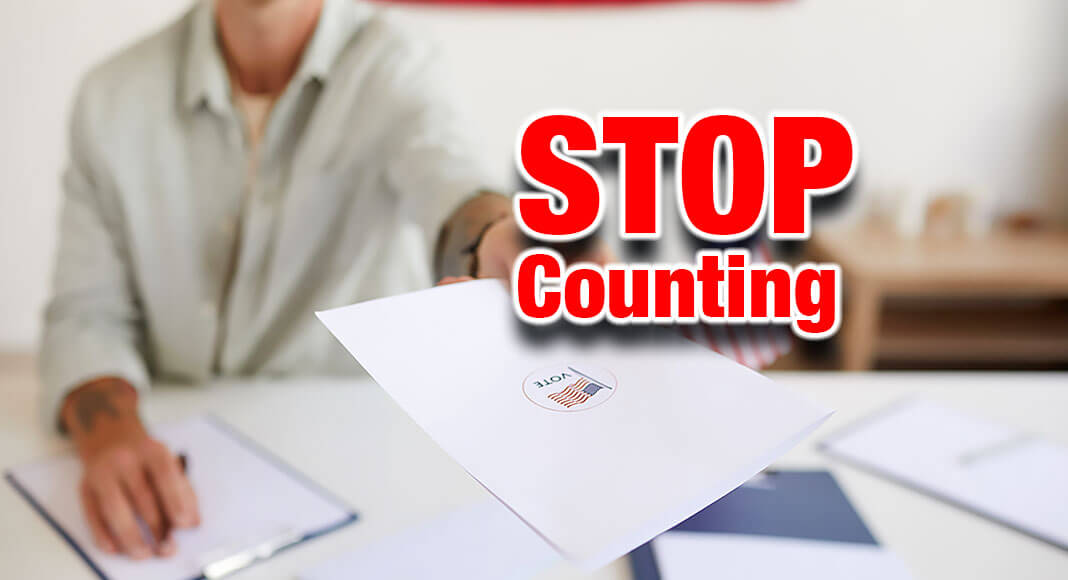
Judicial Watch
Washington, DC – Judicial Watch announced today it filed a federal lawsuit against Illinois on behalf of Congressman Mike Bost and two other registered Illinois voters to prevent state election officials from extending Election Day for 14 days beyond the date established by federal law (Rep. Michael J. Bost, Laura Pollastrini, and Susan Sweeney v. The Illinois State Board of Elections and Bernadette Matthews (No. 1:22-cv-02754)).
Judicial Watch argues that Illinois election law violates federal law, which defines Election Day as “the first Tuesday after the first Monday in November of every even-numbered year.” The complaint states:
Despite Congress’ clear statement regarding a single national Election Day, Illinois has expanded Election Day by extending by 14 days the date for receipt and counting of vote-by-mail ballots
Judicial Watch points out that the current Illinois election law allows vote-by-mail ballots received up to 14 days “after the polls close on Election Day” to be counted as if they were cast and received on or before Election Day. Illinois law also provides that “[e]ven vote-by-mail ballots without postmarks shall be counted if received up to 14 calendar days after Election Day if the ballots are dated on or before Election Day.”
Judicial Watch’s lawsuit notes:
The Board … advised that the number of ballots received after Election Day through November 17, 2020, could materially affect the unofficial election results.
***
[Illinois’ own data indicates that] Illinois received 266,417 vote-by-mail ballots statewide during the period from November 3rd through November 17th.
***
[M]ost of the 266,417 vote-by-mail ballots were received after Election Day, which would mean that as many as 4.4% of votes cast in 2020 were received after Election Day. [Emphasis in original]
Judicial Watch argues that holding voting open for 14 days past Election Day violates the constitutional rights of voters and candidates:
By counting untimely and illegal ballots received after Election Day and diluting Plaintiffs’ timely cast and received ballots, Defendants, acting under color of Illinois law, have deprived and are depriving Plaintiffs of rights protected under the First Amendment and 14th Amendment to the U.S. Constitution in violation of 42 U.S.C. § 1983.
“We are supposed to have an Election Day, not Election Weeks – or months. Illinois’ 14-day extension of Election Day beyond the date set by Congress is illegal, violates the civil rights of voters, and encourages fraud,” said Judicial Watch President Tom Fitton.
In a separate Judicial Watch election lawsuit against Illinois, a federal court ruled in June 2021 that the lawsuit could proceed against Illinois officials for denying public access to Illinois’ voter registration database.
In February 2022, Judicial Watch settled its lawsuit against North Carolina and two of its counties after the North Carolina removed over 430,000 ineligible names from the voter rolls.
In March 2022, a Maryland court ruled in favor of Judicial Watch’s challenge to Maryland’s Democratic legislature “extreme” congressional redistricting gerrymander.
For more than 25 years, Judicial Watch has been known for its aggressive, leading-edge use of public records laws and lawsuits, as well as taxpayer, civil rights and whistleblower protection litigation to fight government corruption. Judicial Watch is a national leader in voting integrity and voting rights. As part of this effort, Judicial Watch assembled a team of highly experienced voting rights attorneys who stopped discriminatory elections in Hawaii, and cleaned up voter rolls in California, Ohio, Indiana, and Kentucky, among other achievements.
Christine Svenson, Esq., of Svenson Law Offices in Palatine, Illinois, is assisting Judicial Watch with the lawsuit.














